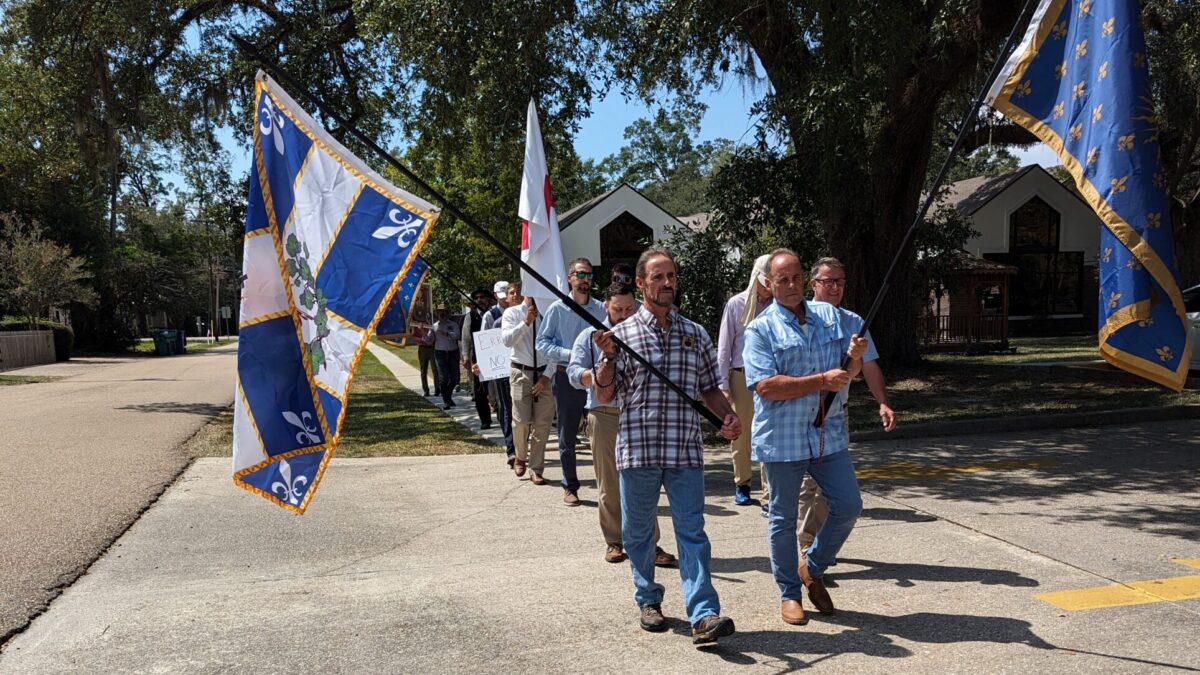
One popular way to resolve the tension between same-sex marriage and religious freedom is to criticize the motivations of religious believers. Usually that criticism is based upon, at best, ignorance about what those believers actually believe or, at worse, a purposeful distortion of their convictions.
We see this in the case of Barronelle Stutzman, the Washington floral artist who declined to create custom floral arrangements to celebrate the same-sex wedding of her friend Rob. In February 2017, the Washington Supreme Court, when ruling against Barronelle, briefly noted that “Stutzman acknowledged at deposition [that] providing flowers for a wedding between Muslims would not necessarily constitute an endorsement of Islam, nor would providing flowers for an atheist couple endorse atheism.”
If Barronelle doesn’t have a religious objection to celebrating atheist or Muslim weddings, why does she object to designing floral arrangements for a same-sex ceremony? To the court, Barronelle made an arbitrary distinction in declining to design custom floral arrangements for a same-sex wedding. This amounts to discrimination.
But the court misunderstands Barronelle’s religious beliefs. She gladly will use her talents to celebrate any union of one man and one woman. For Barronelle, a wedding joining a man and a woman tells the truth about marriage, regardless of whether Muslims or atheists are getting married. Those events involve what is necessary to make a marriage, so Barronelle has no problem participating in those weddings. But unions of any other combination do not constitute marriages, even if they receive the imprimatur of the state.
The secular establishment remains unmoved. Isn’t her formula of marriage gerrymandered to fit her prejudice? Not at all. Barronelle’s beliefs about marriage, which reflect basic orthodox Christian teaching, are firmly rooted in her understanding of God, man, and human sexuality. Christians have understood these to be essential, profound, and interlocking truths for centuries. It is because of these great truths that many Christians object to participating in a same-sex wedding.
Natural Marriage Is Fundamental to the Faith
So Christians aren’t just coming up with their beliefs about marriage arbitrarily. Marriage, according to Scripture and church tradition, is an earthly picture of the relationship between God and his people.
In Genesis, God makes man and woman to help one another, and in marriage, they become “one flesh,” coming together to “be fruitful and multiply.” They commit to one another in what the Bible calls a “covenant” relationship, just as God is faithfully committed to his people.
The Bible teaches that a covenant is a binding agreement containing promises. Early in the biblical narrative, specifically in the Old Testament, God makes a covenant with the people of Israel, but they often reject him, choosing instead to worship the deities of the surrounding nations. As a result, God likens Israel, his covenant people, to an unfaithful spouse.
Hopefully, this is starting to paint the picture of what Christians truly believe about marriage. That picture is made even clearer in the New Testament, where God makes a new covenant with all people who have committed to follow him through his son Jesus Christ.
In his letter to the church in Ephesus, the Apostle Paul quotes from Genesis, the first book of the Bible, when he writes that “a man shall leave his father and mother and hold fast to his wife, and the two shall become one flesh.” Then Paul explains that this “one flesh” mystery is “profound” and “refers to Christ and the church,” meaning that the covenant love in marriage signifies the covenant love Christ has for the church.
You can probably see by now why the definition of marriage is pretty important for a person who believes this. For the Christian, marriage reflects profound truths and enables people to fulfill divine directives. For example, the sexual complementarity that is inherent in biblical marriage (that is, the joining together of a man and a woman) enables mankind to “be fruitful and multiply,” as God has commanded.
Wanting us to mirror Christ’s faithfulness to his bride (the church), God’s expectation is that our marriages will display covenant love and commitment, which is why marital relationships are to be marked by exclusivity and permanence. For that reason, God forbids lust, adultery, divorce without legitimate cause, and other forms of sexual sin. Each of these sins marks a profound failure to love in the way Christ loves the church—they undermine or break the covenant.
For Christians, Same-Sex Marriage Is Impossible
Because marriage is marked by complementarity and oriented toward creating children, Christians don’t think same-sex unions can constitute marriages. Treating same-sex unions as marriages thus communicates profound untruths that are unsettling to many Christians. If the man is absent from a marriage, it communicates that God’s love and faithfulness is not essential to human flourishing; if the woman is absent, then our need to honor and commit to Christ is seen as optional. Divorce being a covenant failure, same-sex marriage is a failure to grasp the covenant itself.
Marriage also reflects important truths about children and their upbringing. The Bible’s understanding of marriage reflects the truth that each child has one mother and one father, and it teaches that there is great value in each child knowing and being raised by those two people in one family unit. Same-sex marriage, on the other hand, tells the world that there is no inherent value in connecting children to their two biological parents. It says that any two people will do.
Thus, conscientious Christians who decline to affirm or participate in same-sex weddings are acting out of a conviction basic to their faith. To them, marriage is an essential means by which God communicates truths about himself, humanity, and the relationship between the two. Telling Christians, like Barronelle Stutzman, to affirm or participate in same-sex marriages effectively tells them to contradict what they believe to be foundational truths about the world.
Our nation’s commitment to religious freedom forbids the government from forcing people to violate their convictions. This is the guarantee of the First Amendment, and it should ensure that Barronelle and others like her have the freedom to live and work peacefully in accordance with their conscience.









